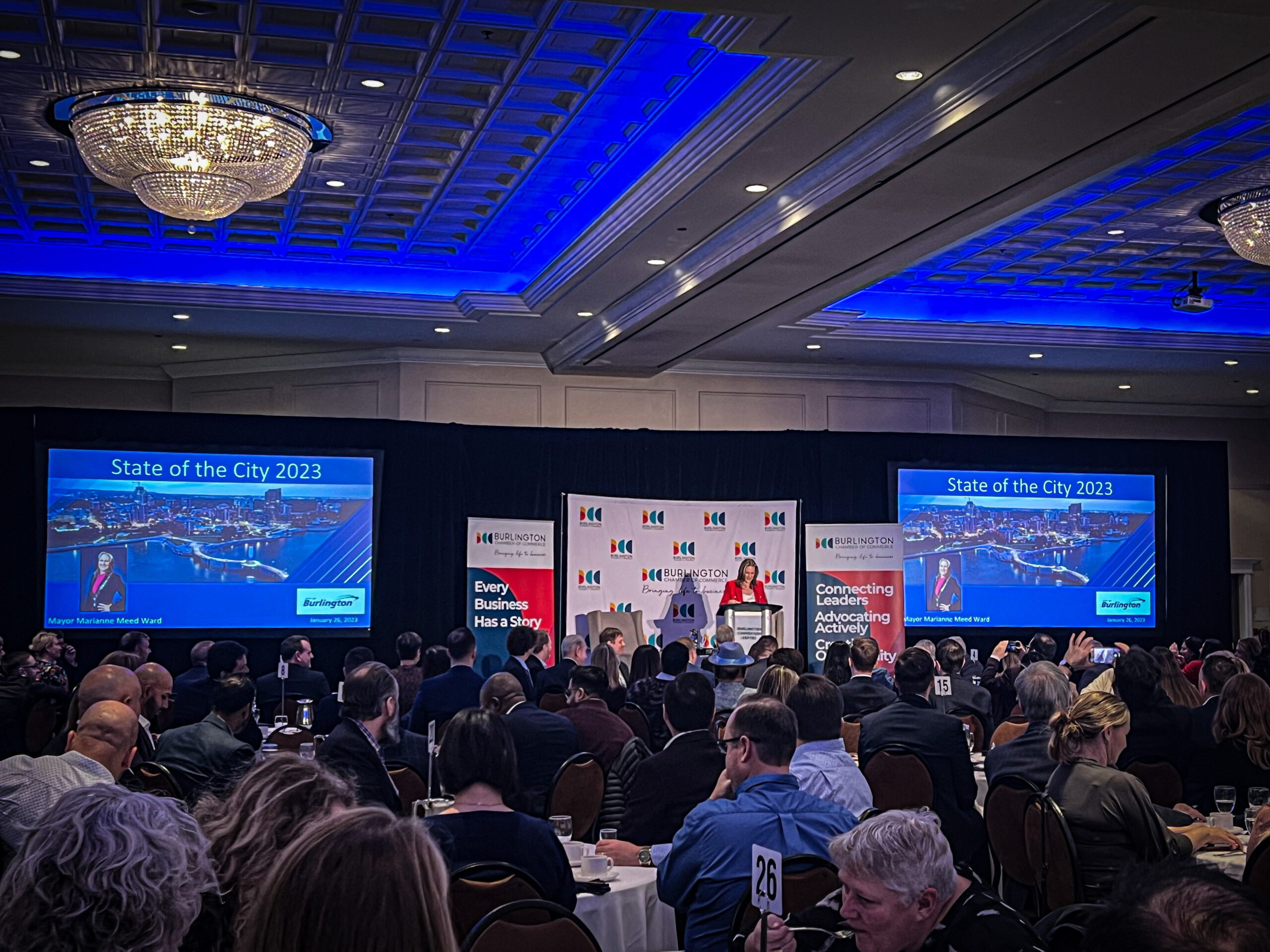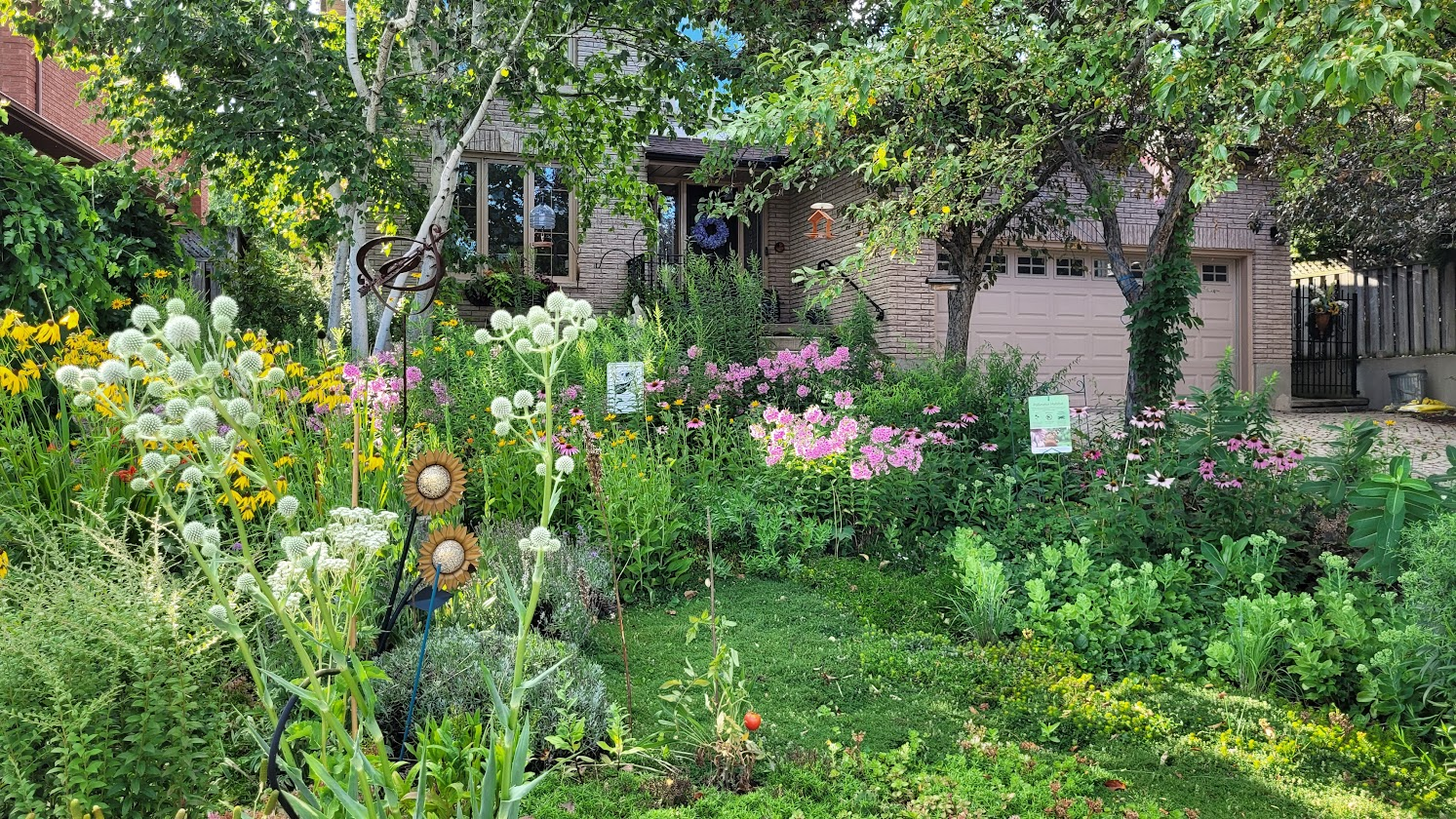By Antonella Pecora Ruiz
Opinion.
This year, I started my undergraduate degree at the University of Toronto’s St. George campus. The city has been entertaining and culturally rich, full of new people and, after this year, memories. However, I found myself missing my home city of Burlington. This shocked me since I had been pining for city living since the beginning of high school. Yet I found that adapting to life as a Torontonian was not easy.
I soon realized that I had grown accustomed to smiling at neighbours while walking and chatting with strangers on public transport in Burlington. The big city’s environment was not as naturally welcoming, as I found little reciprocation to my small(er)-town mannerisms. Additionally, I found that community groups and clubs were more sparse and complex to join, which limited my ability to participate in my new community. This was a change from being an active Burlington community member: last year, I volunteered at local organizations such as Shifra Homes, was part of MP Karina Gould’s Youth Council, and served my peers as Nelson High School’s Student Council President.
The constant reminders of Burlington ultimately led me to decide that I wanted to reconnect with and give back to our community this summer. I reconnected with Shifra Homes and MP Karina Gould’s Youth Council, volunteered at city events, and became a pseudo-member of the Burlington Lakeshore Rotary Club as their representative at the Rotary Youth Leadership Academy. However, it has been my internship with The Borgen Project that has truly defined my summer.
The Borgen Project is a non-profit organization that advocates for policies that alleviate global poverty through direct lobbying. Given my participation in the community and having learned of the power of the individual in my political science classes, I decided that joining The Borgen Project would suit me in my mission to give back to my community by working to bring awareness to the organization and their cause.
As a political affairs intern at The Borgen Project, I was tasked with three major assignments: mobilizing people to contact their members of parliament in support of increasing the budget of Canada’s Official Development Assistance (ODA, otherwise known as foreign aid); meeting with Burlington MP Karina Gould to advocate for increasing ODA; and fundraising $700 for The Borgen Project. Before mobilizing my community, I had to research ODA and what an increase in this budget item would mean for my fellow Canadians. Considering the present situation in Canada, foreign aid may not seem necessary, but given Canada’s status as a global power and peacemaker, I firmly believe that Canada should play a role in assisting other countries in need while also providing support for our own citizens. These dual objectives can be achieved through the effective use of foreign aid.
Foreign aid can save lives by improving education, supporting health care, agriculture, and infrastructure, and helping to create jobs and long-term economic growth, both here and abroad. For instance, as a student, I might pursue my education overseas if a public university provides the opportunities and resources I need to succeed. This is similar to the experience of many exchange students who come to Canada; however, if these academic opportunities become available in their home countries, these people will be able to save a significant amount of money that they may then invest in their futures while gaining equal opportunities to those studying in “first world” countries. Investing in foreign aid will expand opportunities abroad, create more global opportunities, and improve and increase the availability of high-quality education globally and locally — a benefit to everyone worldwide.
Canada’s investments in overseas development support security, trade, migration, health, and economic stability. Canadian prosperity is connected to foreign ad: investing in foreign aid helps Canada maintain good relations with the recipient countries, which may lead to better trade deals and benefits once those countries are further developed.
Canadians must also understand that conflict can quickly spread beyond borders as war-torn or poor communities lack access to basic needs and may need to move to survive, such as in the Middle East and North Africa. Hence, spending on prevention rather than armed security is more sustainable and effective when aiming to help preserve our global neighbours’ lives. Additionally, international issues such as infectious diseases, conflicts, and climate change will directly impact Canada’s future and people, so it is reasonable for Canada to take initiative on its own behalf and as a part of the global community.
Prime Minister Justin Trudeau’s government had pledged to increase international development assistance annually until 2030 to align with the Sustainable Development Goals (SDGs). However, the 2024 budget breaks this promise. Canada’s federal government has continued to decrease its ODA budget to $4.7 billion in the fiscal years (FY) of 2023/24 and 2024/25 and to $4.6 billion in FY 2025/26. These cuts will limit access to COVID-19 vaccines, threaten the safety of Ukrainians, and decrease aid-receiving countries’ ability to address climate change and global hunger.
This is where The Borgen Project and similar organizations come in. The Borgen Project is not only making an effort to raise these concerns with our government but has also recruited several young Canadians like myself to educate our communities on the truth of world issues and the power of our voices.
Following my research, I understood why it mattered that I fundraise and meet with Minister Karina Gould to raise awareness about my opinions. Fundraising was challenging initially, as there was little interest from the neighbours, friends, and audiences I spoke to. Thankfully, my extended family pledged over $400, which was not only a major help but a starting point for further brainstorming, and before I knew it, I was running a “summer camp” from my backyard with the help of my mom.
The “Art Lab Summer Camp” came to be after I started developing an interest in the national issue of childcare unaffordability and understanding its potential consequences. I soon realized that I could contribute to my community once again by making my time useful to neighbours who were struggling to balance work, family, and personal time by taking care of their little ones.
At the Art Lab Summer Camp, I had the opportunity to educate children about important global issues. It was encouraging to see them engaged and eager to share their ideas on issues such as poverty and climate change. One of the most interesting aspects of our camp was how the children used art as a vehicle of expression. This coincided with some of the activities I planned, which aimed to show them the value of their voices and how to spread awareness about issues they cared about, such as autism awareness, recycling, increasing investment in scientific research, and the importance of humanitarian aid. It was refreshing to see how aware kids were of the world’s present situation and how they are already forming their own beliefs. It was fulfilling to educate them on how to actively participate in politics, even at a young age, because their voices are critical too.
Rest assured, Burlington, our young people are working hard to secure a better future for humanity.
As of right now, I am waiting to meet with the Hon. Karina Gould to discuss the importance of foreign aid; her staff has been kind and consistent in answering my emails and allowing me to volunteer alongside them at local events. My fundraiser is currently at $932 due to the camp and generous donations, and now I aim to reach $1000 before the end of August.
With this article, I hope to educate my community on the significance of foreign aid in securing and shaping the world. Simply put, if nations abroad face serious issues, Canada is bound to face these issues or their consequences in due time. Canada should increase its foreign aid budget (ODA) to effectively utilize its global influence, fostering a secure domestic environment and promoting a peaceful international order. Please join me in spreading understanding about this issue and consider helping in any way you can: you can contribute to my fundraising efforts by donating through The Borgen Project’s website and including my name in the “on behalf of” section or by emailing your representative in parliament. Our voices should be heard.

Antonella Pecora Ruiz is an undergraduate at the University of Toronto, studying political science, art history, and philosophy. She has been a part of the Burlington community for the last eight years. Her interests include volunteering, reading classical literature, and studying history.





